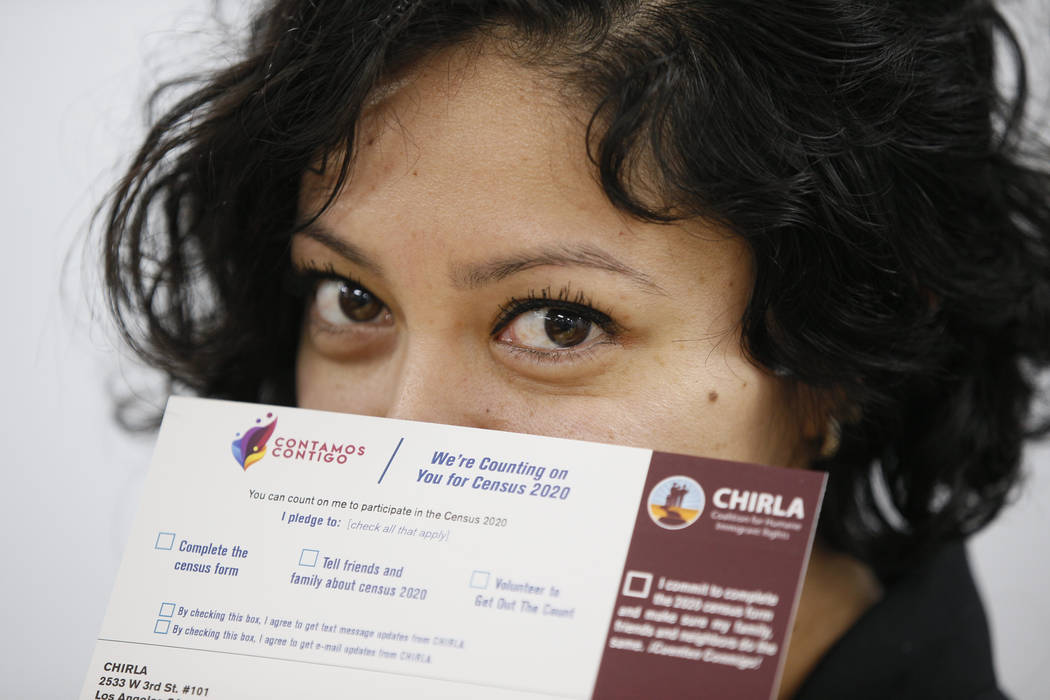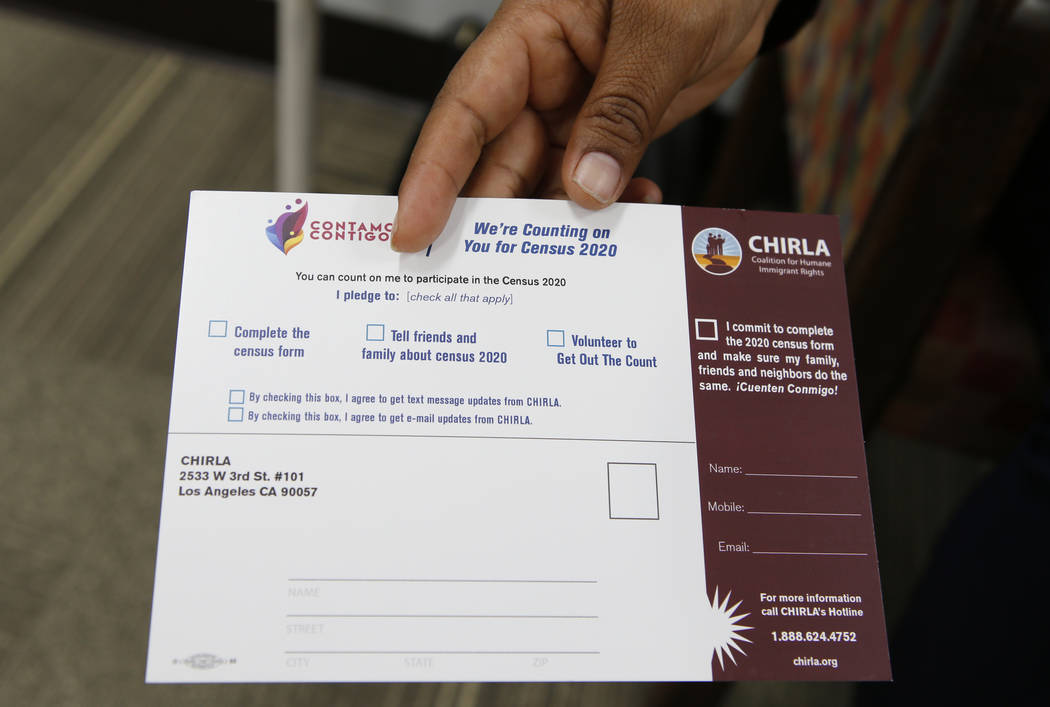Alarmed states work to avoid vast undercount in 2020 census
LOS ANGELES — In a squat office building not far from downtown, Esperanza Guevara is getting ready to look for people who might not want to be found. And her job could get a lot harder.
The immigrant-rights activist is leading a drive to reach tens of thousands of people who entered the United States illegally and persuade them to participate in the 2020 census, the government’s once-a-decade count of the population.
The Trump administration’s plan to use the census to inquire about each person’s citizenship has sent a chill through immigrant communities. Guevara and others fear the question could discourage participation and, by some estimates, leave millions of people uncounted across the country.
Such concerns are concentrated in Democratic-led states with large immigrant populations. An inaccurate count could have real-world consequences, since billions in federal dollars and seats in Congress are allocated according to population.
In immigrant communities often wary of government, a question about citizenship status will make people “less likely to fill out the census form or even answer the door when someone comes knocking,” said Guevara, who works for the Coalition for Humane Immigrant Rights of Los Angeles.
Deportation fears
Those concerns have been heightened by Trump’s slashing rhetoric toward immigrants and by fears that census information could be used to find and deport people.
“Their first thought is, ‘Is this information going to be used against me?’” Guevara said, standing near rows of computers that will be staffed by volunteers trying to connect with prospective census participants.
Census Bureau chief Ron Jarmin said the agency is legally barred from sharing its information with law enforcement agencies, adding: “We are committed to ensuring that the data we collect are always protected.”
The U.S. Supreme Court is weighing a legal challenge seeking to strike the citizenship question from the census form. During oral arguments last week, the court’s conservative majority appeared ready to allow the question.
The Trump administration has argued that it has wide discretion in designing the questionnaire and that the citizenship question is clearly constitutional because it has been asked before — most recently, 1950 — and continues to be used on smaller, annual population surveys.
The Public Policy Institute of California has said that failure to accurately tally immigrants and other hard-to-reach groups could lead to an undercount of 1.6 million people, or roughly 4 percent of the state’s population. That would be enough to cost California one of its 53 House seats.
So California and other states are spending millions to persuade residents, legal and not, to fill out census forms, employing such means as public service messages, mailings, visits to people’s homes and informational gatherings.
“States are doing this because of the number of threats to a fair and accurate count,” said Vanita Gupta, president and CEO of the Leadership Conference on Civil and Human Rights.
Nevada could lose $170M
Nevada stands to lose nearly $170 million in federal funding for health care and child welfare programs over the next decade if even 1 percent of state residents don’t participate in next year’s census, state officials estimate.
Colorado’s House recently endorsed spending $12 million to encourage participation in the census. The governors of Kansas and Nevada have moved to create committees devoted to making sure everyone takes part.
In New Mexico, where the state has launched a multimillion-dollar effort to ensure an accurate tally, Gov. Michelle Lujan Grisham has warned that a 1% undercount could translate into more than $700 million in lost federal revenue over a decade.
California has biggest risk
Perhaps no state has more at risk than California, where no racial or ethnic group constitutes a majority and Hispanics outnumber whites. More than a quarter of its residents are foreign-born.
Nearly 3 in 4 Californians belong to groups the census has historically undercounted, including Hispanics, blacks, renters, immigrants, children and members of multiple families that share a single home. The state also has an above-average poverty rate, and the poor — especially the homeless — are difficult to count.
With online surveys being widely used next year, people with shaky access to the internet also could disappear from the count.
The state has budgeted about $100 million for education and media campaigns to reach people, a figure likely to jump to $150 million later this year. Most of the money is going to hire field workers and to advertise the importance of participating, a message that will be printed even on lottery tickets.
The Trump administration’s “citizenship question has one purpose: to undercount our diverse communities,” Democratic Gov. Gavin Newsom said. “Our state won’t be intimidated by the White House’s actions, and we aren’t going to back down from fighting for a fair count.”
Hiring plans
The Census Bureau’s own plans call for hiring 450,000 to 475,000 temporary workers. Most of them will knock on the doors of people who do not fill out the questionnaires. That number is lower than it was 10 years ago because the bureau is counting on technological changes to make the job more efficient.
With a $400,000 contract from the state, Asian Americans Advancing Justice in Los Angeles is working to reach into immigrant communities where more than a dozen languages are spoken, including Korean, Vietnamese and Chinese. Southern California is home to the largest Asian population in the U.S.
An Le, the group’s statewide census manager, said census research has found that Asians who speak little or no English and were born outside the U.S. are fearful of repercussions from the government if they submit the information. The group is stressing the importance of the census to health and education funding.
Le said more money is needed to produce census materials in a greater range of languages. She worries, too, about the citizenship question.
Even for legal permanent residents, that would serve as “a deterrent and a barrier,” she said.
———
Mulvihill reported from Cherry Hill, New Jersey.





















